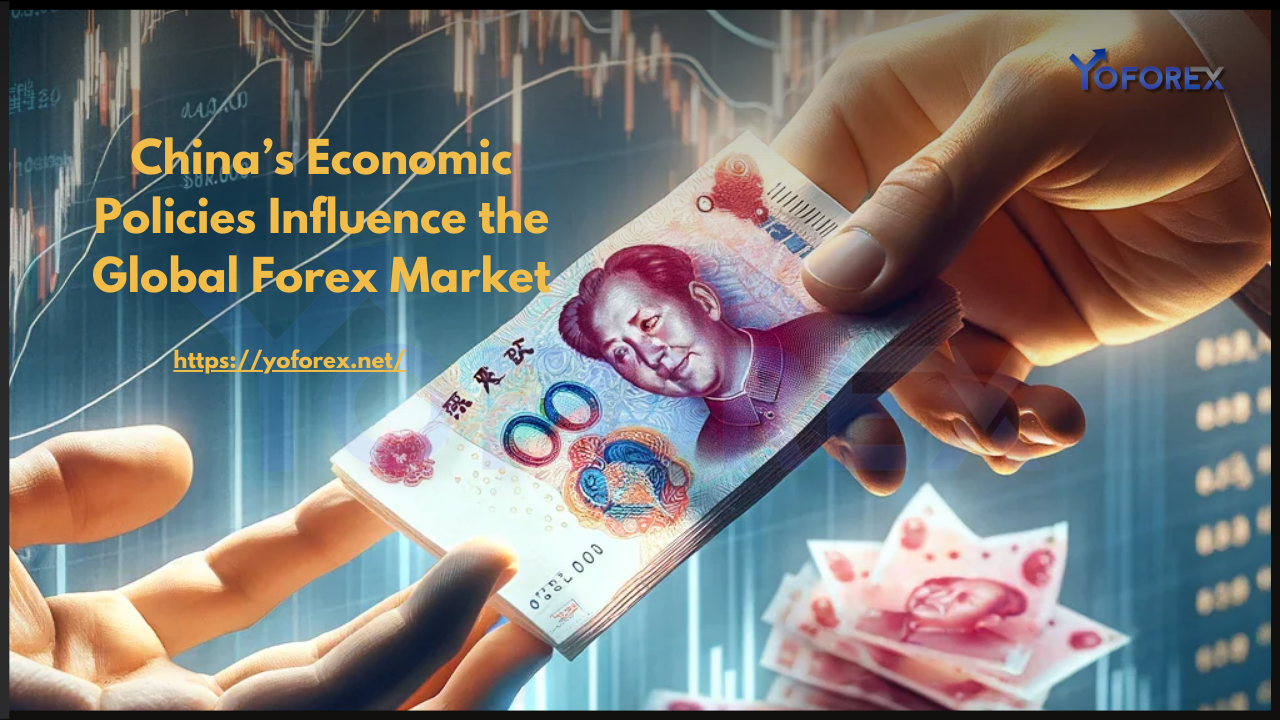The global foreign exchange (forex) market, the largest and most liquid financial market in the world is deeply influenced by the economic policies of major economies. Among these, China’s economic strategies hold significant weight due to the country’s role as the world’s second-largest economy and a key driver of global growth. In recent years, China’s proactive fiscal and monetary policies, coupled with its focus on structural reforms and technological innovation, have had profound implications for the forex market. This blog post explores how China’s economic policies shape global currency dynamics, with a focus on the yuan, commodity currencies, and broader market sentiment.
1. China’s Proactive Fiscal and Monetary Policies
China’s economic policies in 2024 and 2025 have been characterized by a shift toward proactive fiscal measures and a moderately loose monetary stance. The government has prioritized stabilizing growth, expanding domestic demand, and addressing structural challenges such as deflation risks and weak consumer confidence.
- Fiscal Policy: China has raised its fiscal deficit to 4% of GDP, signaling a more aggressive approach to stimulate the economy. This includes increased infrastructure spending, targeted consumption support, and measures to stabilize the housing market.
- Monetary Policy: The People’s Bank of China (PBOC) has adopted a moderately loose monetary policy, with plans to reduce reserve requirement ratios and interest rates to maintain liquidity and support economic growth.
These policies have bolstered market sentiment and contributed to a more stable yuan, which is crucial for global forex stability. However, the effectiveness of these measures remains contingent on addressing deeper structural issues, such as local government debt and an aging population.

2. The Yuan’s Role in the Global Forex Market
The Chinese yuan (CNY) is a key player in the forex market, and its value is closely tied to China’s economic policies. In 2024, the yuan faced downward pressure due to weak domestic demand and global trade uncertainties. However, the PBOC has taken steps to stabilize the currency, including maintaining a balanced exchange rate and preventing excessive depreciation.
- Yuan Depreciation and Export Competitiveness: A weaker yuan can enhance China’s export competitiveness, particularly in the face of potential tariff hikes by the U.S. However, excessive depreciation risks triggering capital outflows and undermining investor confidence.
- Global Implications: The yuan’s stability is critical for emerging markets and commodity-exporting countries, as it influences trade flows and investment patterns. For instance, a weaker yuan can pressure currencies like the Australian dollar (AUD) and New Zealand dollar (NZD), which are heavily reliant on trade with China.
3. Impact on Commodity Currencies
China’s economic policies have a direct impact on commodity currencies, given the country’s role as the world’s largest importer of raw materials.
- Demand for Commodities: China’s focus on infrastructure investment and green energy initiatives has driven demand for commodities such as iron ore, copper, and oil. This has supported currencies like the AUD and Canadian dollar (CAD).
- Trade Tensions and Tariffs: The threat of U.S. tariffs on Chinese goods has created uncertainty in global trade, affecting commodity prices and currencies. For example, a 60% tariff on Chinese imports could disrupt supply chains and reduce demand for commodities, leading to volatility in commodity currencies.
4. Global Trade and Geopolitical Tensions
China’s economic policies are also shaped by geopolitical tensions, particularly with the U.S. The potential for a renewed trade war has significant implications for the forex market.
- Trade War Risks: A 60% tariff on Chinese goods could reduce bilateral trade between the U.S. and China, leading to a 1-1.5% drag on China’s GDP growth. This would weaken the yuan and create ripple effects across global currencies.
- Currency Wars: To mitigate the impact of tariffs, China may allow gradual yuan depreciation. However, this could spark currency wars, as other countries devalue their currencies to maintain export competitiveness.
5. China’s Structural Reforms and Long-Term Forex Implications
Beyond short-term policy measures, China’s structural reforms are reshaping its economic landscape and influencing the forex market.
- Technological Innovation: China’s focus on high-tech sectors like artificial intelligence, green energy, and biotechnology is enhancing its global competitiveness. This shift is attracting foreign investment and supporting the yuan’s long-term stability.
- Green Transition: China’s commitment to reducing carbon emissions and promoting green initiatives is creating new growth drivers. These efforts are not only boosting domestic demand but also positioning China as a leader in the global green economy.
Conclusion
China’s economic policies are a cornerstone of the global forex market, influencing currency values, trade flows, and investor sentiment. From proactive fiscal and monetary measures to structural reforms and geopolitical strategies, China’s actions have far-reaching implications for the yuan, commodity currencies, and global financial stability. As the world navigates economic uncertainties, understanding China’s policy direction will remain crucial for forex traders and investors alike.
By staying informed about China’s economic developments, market participants can better anticipate currency movements and capitalize on emerging opportunities in the dynamic forex landscape.

